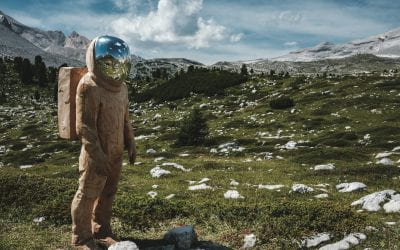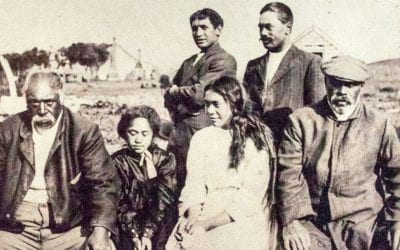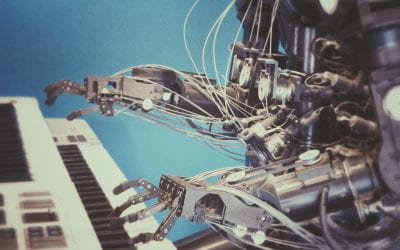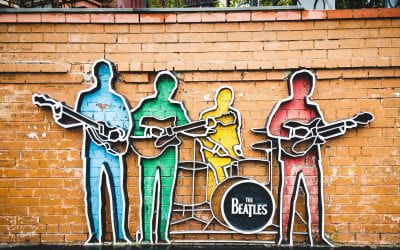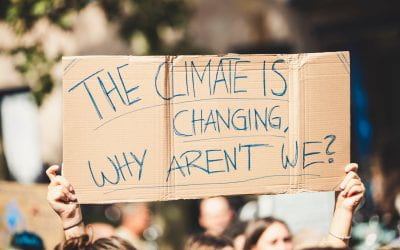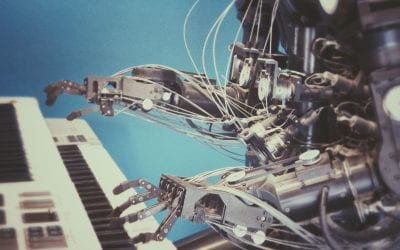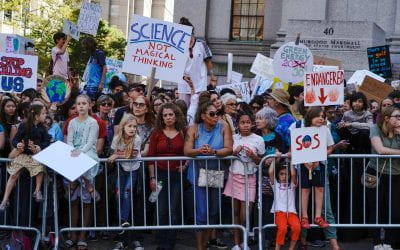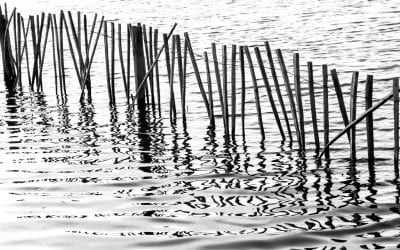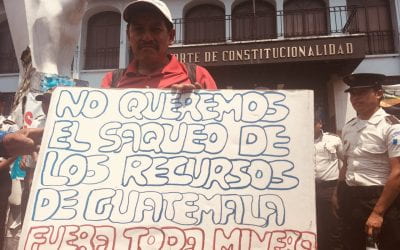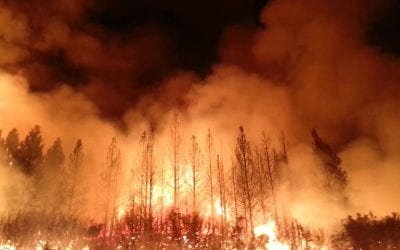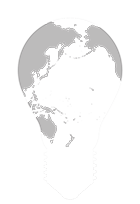
The Big Q
Questions – Ideas – Scholarship – Debates
Project for Public Interest Media

Politics & Society
Sustain: Are we facing a water crisis?
What is the state of our water? What are the primary challenges to ensuring clean, potable water for generations to come? And what are the politics that either prevent or advance the availability of healthy waterways and drinking water? To answer these questions, Associate Professor Dr Maria Armoudian speaks to Dame Juliet Gerrard, Professor Naresh Singhal, Associate Professor Daniel Hikuroa and Dr Filippo Verre.
Sustain: What role can litigation play in fighting climate change?
European Court of Human Rights, courtroom, 2014 by Adrian Grycuk. Used under CC BY-SA 3.0 PL In recent years, thousands of lawsuits have been filed around the world by private individuals to NGOs and state governments in an attempt to force greater action on climate...
Sustain: What is the link between authoritarianism and climate change?
Despite increasing signs of a climate crisis, false information continues to drive decision-making at the highest level, particularly in countries which have recently taken a turn towards authoritarianism.
What are the health benefits of decarbonising transport?
New research shows potential health benefits from decarbonising transport
The triple Whammy of the Government’s transportation plan
Government’s proposal to hike public transport fares will threaten a triple whammy – compromising our health, planet and economy, writes Maria Armoudian.
What impact will New Zealand’s new national transport plan have?
The government’s new National Land Transport Programme will see much of the spending be driven into major highway schemes, and steered away from sustainable transport alternatives for the main cities.
Science & Technology
Sustain: How can we deal with the threat posed by microplastics?
From the Antarctic to the deepest depths of the ocean, microplastics are found in increasingly large numbers. These tiny, seemingly inescapable plastics pose a range of threats to human health, animal life and the ecosystems on which we rely. How can we deal with this...
Can marine microbes break down microplastics?
Marine plastic pollution is a massive environmental issue, our new study finds no clear correlation between plastic pollution levels and the production of plastic-degrading enzymes by marine microorganisms.
Is the New Zealand Space Agency doing enough to promote sustainability?
New Zealand’s aerospace sector is growing rapidly, but as latest research shows, it is falling short on addressing urgent sustainability issues because of a perception this would incur short-term costs and slow growth.
Sustain: What role can seaweed farming play in the fight against climate change?
AgriSea CEO Clare Bradley and Tane Bradley (AgriSea CIO) inspect a seaweed harvest on a New Zealand beach. ©AgriSea. With increasing interest in aquaculture as an alternative to land-based agriculture, Dr Pauline Herbst speaks to Prof Andrew Jeffs, from the Institute...
Sustain: What role can local and traditional ecological knowledge play in fighting climate change?
The UN Convention on Biological Diversity (CBD) has outlined a plan for humanity to live in harmony with nature by 2050. Our cities aren’t going away, so how can we use biodiversity as a building block and work with indigenous technologies to take action? Pauline Herbst talks with international landscape designer and keynote speaker at the World Green Infrastructure Congress 2024, Julia Watson, to answer these questions.
Sustain: What are the future of cities in a climate crisis?
Brisbane City Flood 2013. Photo by ShepsSnaps, licensed under CC BY-SA 2.0 With over half the global population living in urban centres, a number which is projected to rise to around two-thirds by 2050, the relationship between cities and the climate crisis is...
Business & Economics
What’s the truth behind sustainable seafood claims?
Many seafood products sold in New Zealand make environmental claims, but new research shows most of them are too ambiguous and may serve as greenwashing.
Sustain: What role can seaweed farming play in the fight against climate change?
AgriSea CEO Clare Bradley and Tane Bradley (AgriSea CIO) inspect a seaweed harvest on a New Zealand beach. ©AgriSea. With increasing interest in aquaculture as an alternative to land-based agriculture, Dr Pauline Herbst speaks to Prof Andrew Jeffs, from the Institute...
Sustain: How can we tackle income inequality and environmental degradation?
On 13th September, Ngā Ara Whetū co-hosted a symposium on the challenges of inequality and environmental degradation with Juncture: Dialogues on Inclusive Capitalism, a research centre based in the Business School at the University of Auckland.
Could one small step for supply chains mean one giant leap toward sustainable space exploration?
Without proactive leadership on environmental sustainability, the New Zealand space industry risks losing competitive advantage in a global space market with increasingly environmentally conscious customers. Shedding light on supply chains is the first step.
Is rooftop solar the solution to New Zealand’s energy woes?
By Stephen Poletti, University of Auckland, Waipapa Taumata Rau; Bruce Mountain, Victoria University (Melbourne); Geoff Bertram, Te Herenga Waka — Victoria University of Wellington. Photo used is Solar on Metal Roof by Wikideas1, used under CC0 1.0 Universal. ...
What are donor-advised funds and how are they turning the US culture wars into charity?
DAFs channel huge amounts of cash to ‘culture war’ groups – anonymously. Why do people get tax breaks for using them?
Arts & Culture
Reviving a Lost Heritage: How Can an Indigenous Community Resurrect Its Dormant Language?
Discover the initiative to revive Ta rē Moriori, an indigenous language in New Zealand, led by linguist John Middleton and Hokotehi Moriori Trust.
Does AI work by exploiting our unwaged labour?
Fabio Morreale exposes the exploitation of AI training through our interactions, raising ethical concerns and advocating for change.
Is “Now and Then” really a Beatles song?
Discover the AI-driven revival of the Beatles’ “Now and Then,” exploring its technology, historical context, and its impact on the legendary band’s legacy.
Can NZ step up and address Earth system decline?
The Government of Aotearoa New Zealand has a unique opportunity to demonstrate leadership and action by changing its laws to conform with the laws of nature, writes Klaus Bosselmann. Can NZ step up and help lead?
Will AI Become the Arbiter of Music Copyright Infringement?
Musicologist Dr. Patrick Savage examines the effectiveness of algorithms in detecting music plagiarism and their role in copyright infringement cases.
The fall into the abyss
In April 1909, two waves of massacres shook the province of Adana, located in the southern Anatolia region of modern-day Turkey, killing more than 20,000 Armenians and 2,000 Muslims.
Ngā Ara Whetū
Sustain: What role can seaweed farming play in the fight against climate change?
AgriSea CEO Clare Bradley and Tane Bradley (AgriSea CIO) inspect a seaweed harvest on a New Zealand beach. ©AgriSea. With increasing interest in aquaculture as an alternative to land-based agriculture, Dr Pauline Herbst speaks to Prof Andrew Jeffs, from the Institute...
Is New Zealand’s plan to revive offshore oil exploration out of step with global demand?
The government plans to reopen New Zealand’s territorial waters to oil drilling. This flies in the face of projections that demand for oil could peak as early as this decade.
Sustain: What are the future of cities in a climate crisis?
Brisbane City Flood 2013. Photo by ShepsSnaps, licensed under CC BY-SA 2.0 With over half the global population living in urban centres, a number which is projected to rise to around two-thirds by 2050, the relationship between cities and the climate crisis is...
Planet + People vs Plastics
On Earth Day 2024, Ngā Ara Whetū partnered with Te Aka Mātauranga Matepukupuku, the Centre for Cancer Research, to discuss the ubiquitous presence of plastics in our environment, and the impact they are having to the land, sea, air, animals, and on our own health and well-being.
Could one small step for supply chains mean one giant leap toward sustainable space exploration?
Without proactive leadership on environmental sustainability, the New Zealand space industry risks losing competitive advantage in a global space market with increasingly environmentally conscious customers. Shedding light on supply chains is the first step.
Who are today’s climate activists? Dispelling three big myths on Earth Day.
It’s easy to get caught up in the myths about climate activism, particularly in today’s polarized political environment. On Earth Day 2024, let’s explore the truth about three of the big myths being told about climate activism and the climate movement today.
Sustain: How can nature guide our remedies for climate change driven flooding?
Maria Armoudian discusses nature-based solutions to flooding with Gary Brierley and Tim Welch.
Sustain: What does a new President mean for biodiversity in Guatemala?
Guatemala is one of the most dangerous countries in the world for land and environmental activists. Pauline Herbst speaks with Maya Q’eqchi’ community leader in education Fredy Oxom and anthropologist Callie Vandewiele to find out why a silent indigenous led protest is important for biodiversity.
Sustain: Is forestry contributing to climate change?
Maria Armoudian discusses the role of forestry in climate change with Kevin Trenberth, George Perry and Cate Macinnis-Ng.
Reimagining Our World: A Competition from Ngā Ara Whetū and The Big Q
Ngā Ara Whetū and The Big Q have come together with a competition that encourages us to think differently. This competition asks participants to explore new possibilities in redefining success and beauty.














